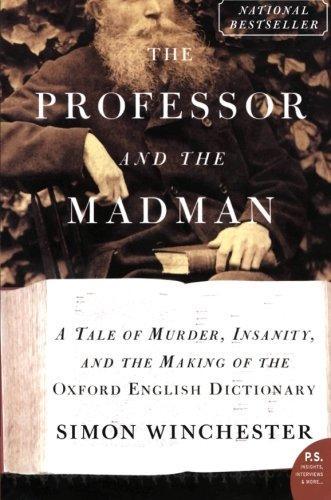Acton reviewed The Professor and the Madman by Simon Winchester
Review of 'The Professor and the Madman' on 'Goodreads'
3 stars
At first it seemed like a good idea to start this review with a definition, since that is how Simon Winchester started his chapters, but then I thought better of it, since that is not one of the features I enjoyed about this book. So, no gimmicky start to my short review.
The author introduces us to two very different men whose lives converge in an unlikely way, which involved the monumental task of creating The Oxford English Dictionary, The history of the work--and lack thereof-- that came before the OED was very interesting, and may have been my favorite part of the book. I still can't imagine how the OED was accomplished before word processors. Actually, the project started before typewriters.
The man that lead this operation was lexicographer and philologist James Murray, and work started in 1857. From 1884-1928, the dictionary was published in installments, or fascicles, which is the more technical term. (A new word for me). Seventy years of work! Murray died before it was completed, something he had not foreseen.
Before the reader gets to the part about the making of this amazing dictionary, however, she is presented with a teaser, of sorts: The Dead of Night in Lambeth Marsh, and the words mystery and murder. It's not mysterious at all; a delusional American guns down an innocent man as he makes his way to his menial, graveyard-shift job. The murder is committed by William Minor because of a paranoid fantasy about the other man trying to break and enter into his room. The murdered man was George Merrett, a man with a wife and several children. (I did admire the way the author paid respect to the victim.)
My interest flickered on and off during the accounts of Minor's life and treatment. The fact that many men came away from the American Civil War with profound troubles, both physically and mentally, is a topic that does interest me, but there is not enough known about Minor's case to really speak of. Also, by the way, he received better care than most. In the end, I felt that I'd read more about Minor than Murray, or anything else.
I'm glad to have finally read this, it is another interesting part of history that I did not know existed, and gave me more of an appreciation for all who wrote at a time when there were no references to guide the way.

